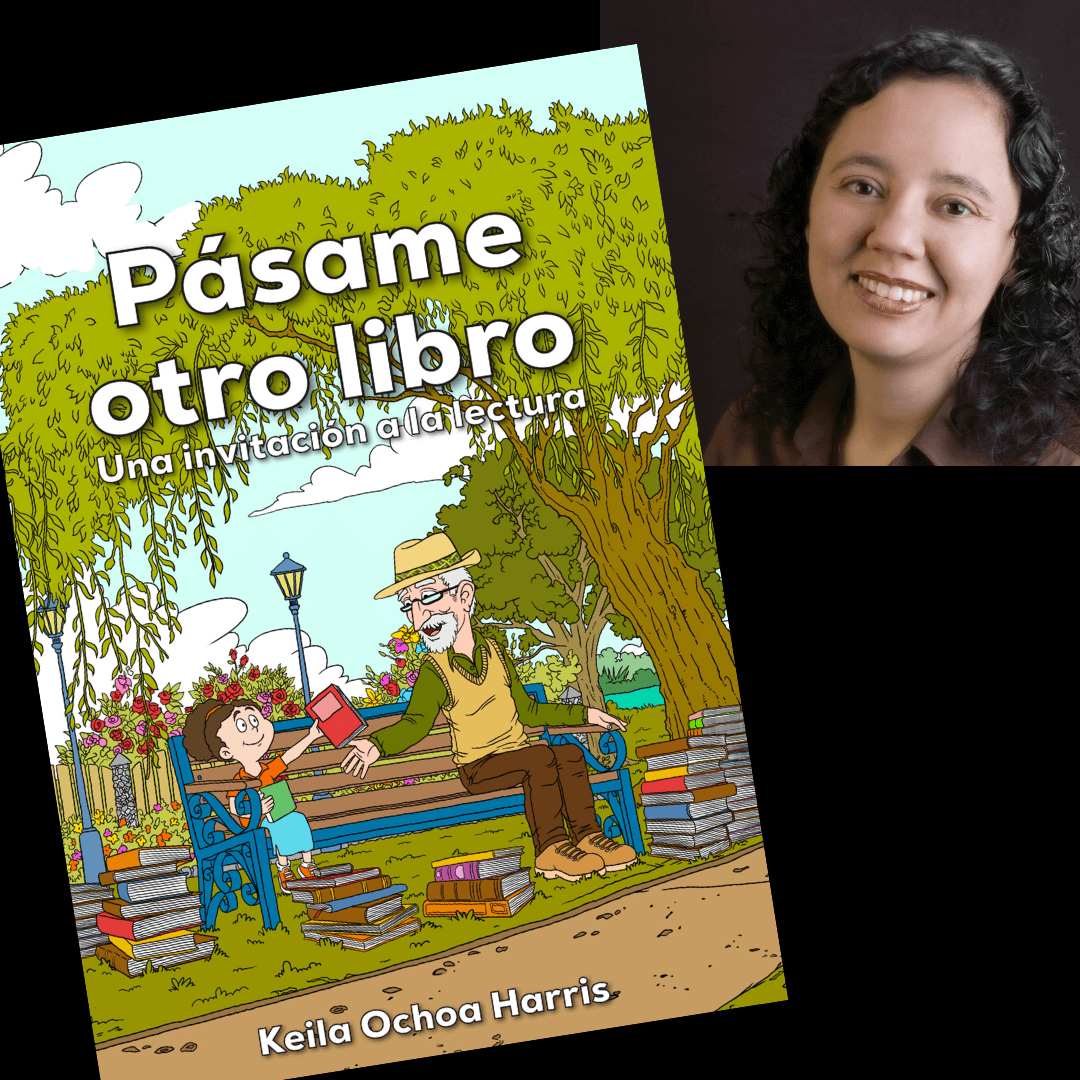We recently talked with Keila Ochoa Harris, who has published more than 20 books in Spanish, both fiction and non-fiction. Her most recent book, Pásame Otro Libro, promotes reading in Latin America. It is available in Argentina from the publisher, Publicaciones Alianza, and will be available in Mexico this month. Check out the publishing house website for more information.
Why did you write your new book, Pásame Otro Libro (“Hand Me Another Book”)?
I wrote this book to promote reading in Latin America. Sadly, the numbers and statistics show that in most Latin American countries, people read a little bit more than one book a year. However, the Church should be the place where people change this statistic. Aren’t we, at the end of the day, people of the Book? How can Christian publishing houses survive if Christians read only one book per year or less? What are we doing to help the upcoming generations to become avid readers?
In the book I share about the importance of reading in the lives of children, teenagers, leaders, and Christians in general. We discuss the most important book, the Bible, which we should all read, but I also encourage people to try other genres. There are also tips on how to help children and teenagers become readers or better readers, and there are some suggestions on how to make reading a habit.
What does your own reading life look like on a daily or weekly basis, and what types of books do you read?
As I wrote the chapters of this book and reflected on my journey, I realized that my reading life has changed drastically with access to social media and streaming platforms. The stage of my life when I read the most was when I was a teen and a young adult. High school and college were hard, but somehow I found extra hours to devour novels and all sorts of books.
I agonize when I think of my own children and how their reading life is very limited today because there are so many other things competing for their attention. It takes a lot of self-discipline to say no to Facebook, Instagram, or other media to focus on a book. However, if we make this a habit, it’s doable. These days I read a lot on my Kindle since it gives me access to books that are hard to find in my city. I enjoy reading novels and classics, Christian books, biographies, and history in general.
What have been a few of the most impactful books on your life personally and professionally?
In his book Art and the Bible, Francis Schaeffer says, “Every artist has the problem of making an individual work of art and, as well, building up a total body of work.” In other words, he invites us not to judge an artist from one piece, but to get to know the author by his or her wide and deep body of work.
Curiously, that is what we generally do when we like an author. We read everything he or she has written, and therefore enjoy or learn from their production. So, I could mention two books I have liked, but it would be very limiting. I think that using Schaeffer’s suggestion, I can pinpoint the influences in my own work from other writers.
In that sense, I would have to mention the impact of C.S. Lewis’ writings or Tolkien’s, Dostoyevsky’s, or Tolstoy’s. However, two authors have shaped the way I write fiction. One is Taylor Caldwell. I read most of her books in my youth and today I see how she made me value historical fiction. The other is Bodie Thoene. Again, it’s not one book that I enjoyed, but the many series she wrote and how she made history come to life.
How do we build cultures of people who enjoy reading?
I wish I knew the answer. I think a very good start is to give the first step in our small communities of faith and family. One way to enjoy reading is by reading out loud with our children and our friends. Talking about books, lending books, and quoting books also helps.
Schools are certainly important. Sadly, in Latin America many schools kill the joy of reading through a number of ways. First, we have very poor libraries with limited titles. Children don’t have options and don’t have the opportunity to touch, smell, and feel books. Second, reading becomes dry and compulsory, making reading one more thing to do instead of a door to a new culture or fantasy world.
Therefore, I invite my friends in third world countries not to give up. Let’s insist on the value of reading by being good readers and encouragers. Let’s talk, dream, and sing about books. Let’s write and publish good books. Let’s do our best to motivate those around us to read.
And to our friends in countries where you read, think about donating used or second-hand books to Christian schools around the globe, especially in third world countries. A simple donation could be the gate that opens the door for a new generation of readers!

